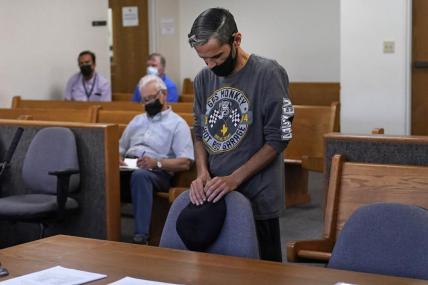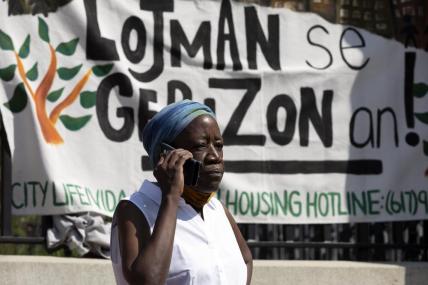Black congresswomen are leading the fight against eviction — that’s not coincidental
OPINION: Congresswomen Cori Bush, Maxine Waters and Ayanna Pressley are standing in the gap for Black women who are disproportionately experiencing eviction or foreclosure

Freshman Congresswoman Cori Bush (D-Mo.) has been sleeping on the steps of the U.S. Capitol since Friday night to protest her House colleagues’ refusal to extend the federal eviction moratorium which expired on July 31. While her peers are home on August recess, Bush is calling attention to a crisis that many Americans will face in the coming weeks.
Bush, a formally unhoused single mother, is an activist and organizer who is taking the same tactics she used to call national attention to Michael Brown’s murder in Ferguson, Missouri to the Capitol. Now in Congress, Bush is using her experiences to give a face and name to a bill that was introduced by Maxine Waters (D-Calif.) that would have protected renters.
Her story is one that should be better known. Rep. Cori Bush and her two very young children lived in her car and then an extended-stay hotel until a family friend offered her a rental property until she could get on her feet. This experience led her to organize in her community around the needs of the unhoused. When the government could not help those in her community – particularly given the lackluster response from those in power during the Ferguson uprising – she ran for Congress in order to do something for her community.
Bush went from being unhoused to the United States Congress. And she used her experiences to implore her colleagues to act now in order to prevent a similar situation from happening to millions of Americans.
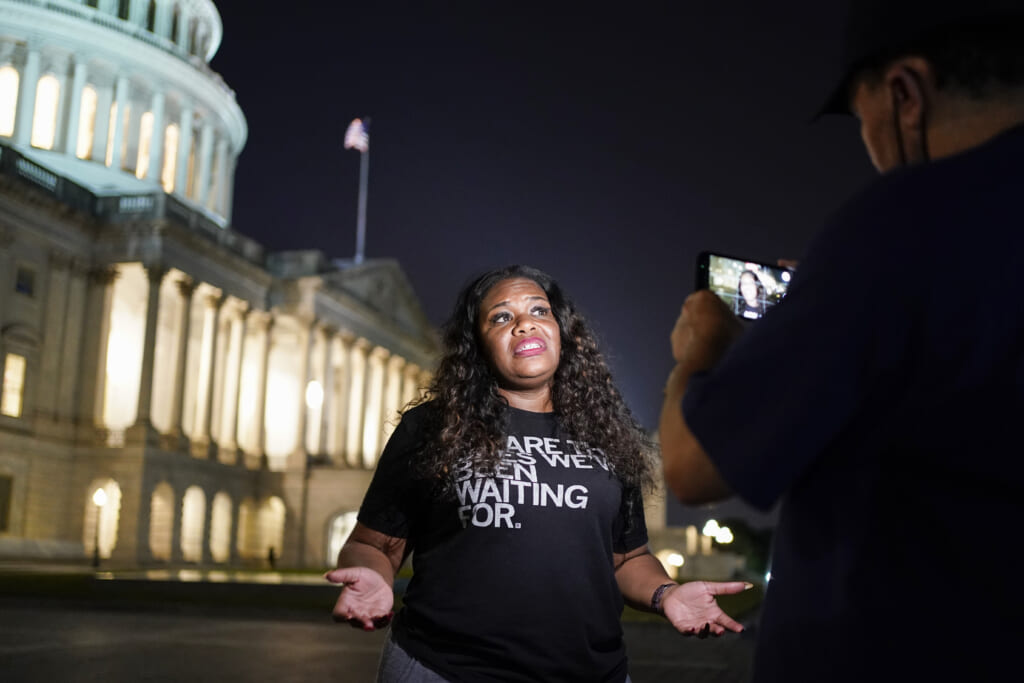
Prior to Bush’s arrival in Congress, Rep. Ayanna Pressley (D-Mass.) led the efforts to protect Black women renters. During the initial congressional debates on the proposed governmental response to COVID-19 in July 2020, Congresswoman Pressley was the only member of the Congressional Black Caucus to distinctly advocate for Black women renters who disproportionately bear evictions. Over a year ago – on July 23, 2020 – she remarked that Black people will continue to face challenges in their attempt to live the American dream as homeownership remains elusive for so many in our community.
The Hearing on Economic Recovery During Coronavirus Pandemic did not center the disparate impact of race and racism as providing additional obstacles for some Americans during the early months of the COVID-19 pandemic. In sum, she blatantly urged her colleagues to act. Rep. Pressley stated that unless Congress acts to continue the unlimited eviction moratorium that there would be a financial and health crisis for Black Americans.
Rep. Pressley specified: “We know the burden will disproportionately fall on Black renters and Black women in particular … In my home state of Massachusetts, Black renters are almost two and half times more likely to have an eviction filed against them, while Black women are three times as likely to have evictions filed against them that are ultimately dismissed – a stain that remains on their credit report, nonetheless.”
Because representation matters, it is Black Congresswomen who stand on behalf of Black women and Black families. Congresswomen Bush, Waters and Pressley are standing in the gap for Black women who are currently experiencing eviction or foreclosure. Bush, in particular, knows all too well the consequences of Congress’ failure to extend the Center for Disease Control and Prevention (CDC) eviction moratorium.
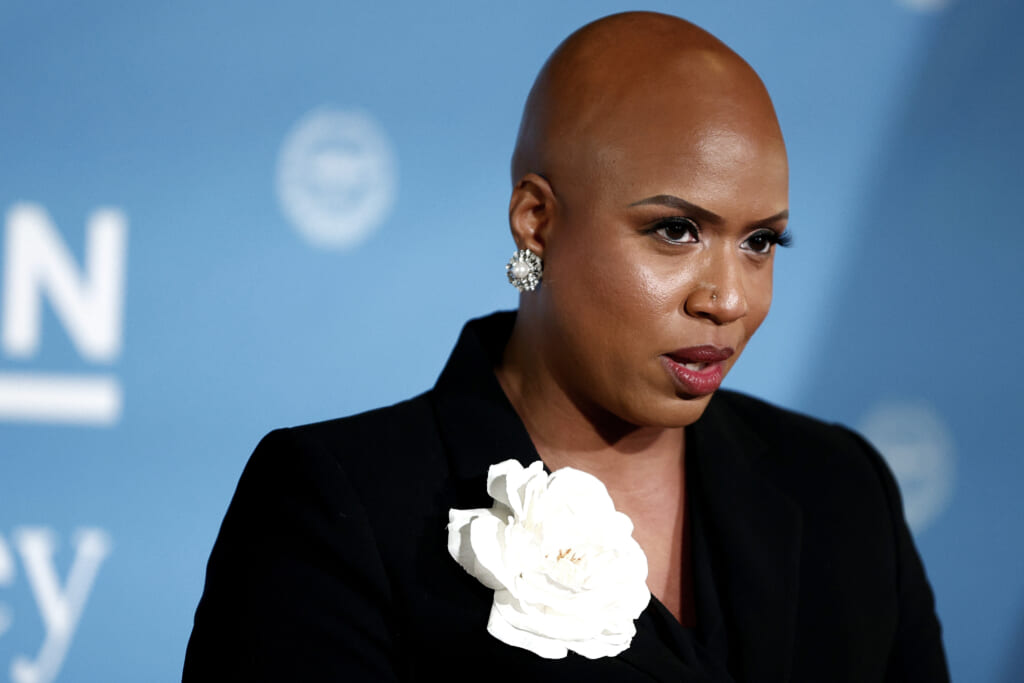
Black Women Bear the Burden of Evictions
On Friday, House lawmakers failed to pass legislation that would have extended the nationwide moratorium for even a couple of months. This comes on the heels of the deadly delta variant of the coronavirus rapidly spreading across the country. The US Census Bureau’s Household Pulse Survey estimates that 3.6 million people will face eviction in the coming months. Experts believe that evictions will soar in the South and other places with weak tenant protections. It will be worst in communities of color and where vaccination rates are low. In sum, there will be disastrous effects for Black women who are already hit hard by COVID-19 and bore the lion’s share of pre-pandemic evictions.
A Housing and Urban Development report found that while the country experienced a rise in homelessness, the majority of those who experience chronic homelessness are Black. Sociologists have found that eviction is typical for poor Black women just as incarceration is typical for poor Black men. The American Civil Liberties Union finds that in 17 states Black women faced evictions at the twice the rate of White Americans – this was before 2020.
Furthermore, the National Women’s Law Center estimates that about 30% of Black women are behind on their rent. This is twice the rate of both White men and women. Additionally, Black women’s unemployment rate is currently at 16.5 percent which is a high of 40 years. And because nearly 70% of Black women are the primary or only breadwinners for their families, the risk of eviction impacts not only Black women but will have bearings on child welfare and public health.
This wreaks havoc on families. Unfortunately, much of what social scientists know about evictions and Black women’s responses to evictions are based on studies of court-ordered evictions. But many more Black women move in with relatives or into homeless shelters before the formal eviction process begins. For Black working mothers, evictions may mean severed connections with their community support systems and social ties. Everything from schooling to one’s credit rating is in peril. The financial and emotional toll that eviction causes on Black women has been underexplored.
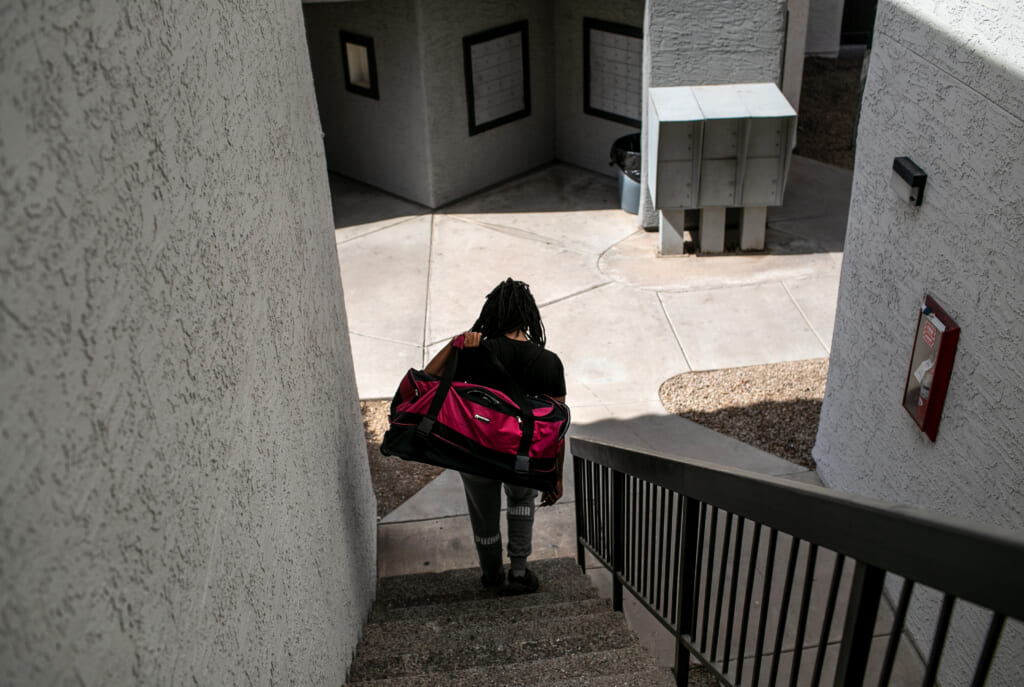
Act Now
But Black women — like Reps. Cori Bush, Maxine Waters, and Ayanna Pressley — are fighting back against evictions. The Louisiana Fair Housing Action Center (LaFHAC) is working to create a support network for Black women in both New Orleans and Louisiana to find housing options. The Black women that LaFHAC seeks to help are precisely those in need — those that have past evictions and/or criminal records — which makes renting more difficult as many landlords do not want to rent to these individuals.
The organization, which is led by Cashauna Hill, is lobbying the Louisiana state government to enact policies that will help women with past histories of eviction or criminal records secure housing. LaFHAC argues that criminal records are used as a proxy for racial discrimination and is a way that landlords justify not renting to people of color. In response, the U.S. Department of Housing and Urban Development created guidance for landlords to end blanket bans on renters with any criminal records. This would help Black women and others with criminal and eviction records to have equal access to housing.
In order to curtail the high number of Black women’s eviction rates, there must be targeted intervention. Governmental responses to getting CARES Act funds for rental assistance should be swift so that Black women and their families are not locked out of their homes. Furthermore, actions to ensure the dignity and civil rights of the unhoused must be addressed by federal and state governments. Congresswoman Bush introduced the Unhoused Bill of Rights to those who are experiencing homelessness. Black women are leading this effort because they have to — the trauma of eviction and foreclosure are unfortunately intimately tied to too many Black women.
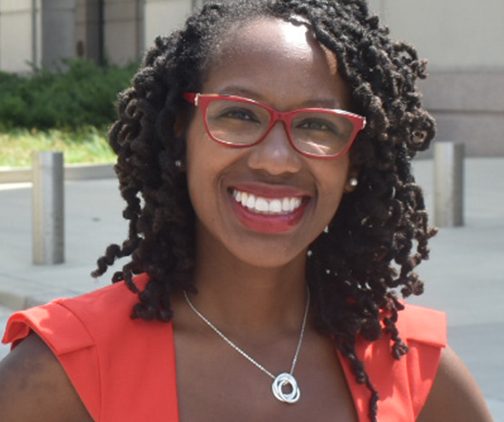
Nadia E. Brown, PhD is a Professor in the Department of Government and Chair of the Women’s and Gender Studies Program at Georgetown University.
Have you subscribed to theGrio’s “Dear Culture” podcast? Download our newest episodes now!
TheGrio is now on Apple TV, Amazon Fire and Roku. Download theGrio.com today!
